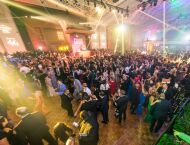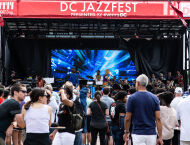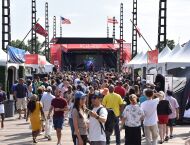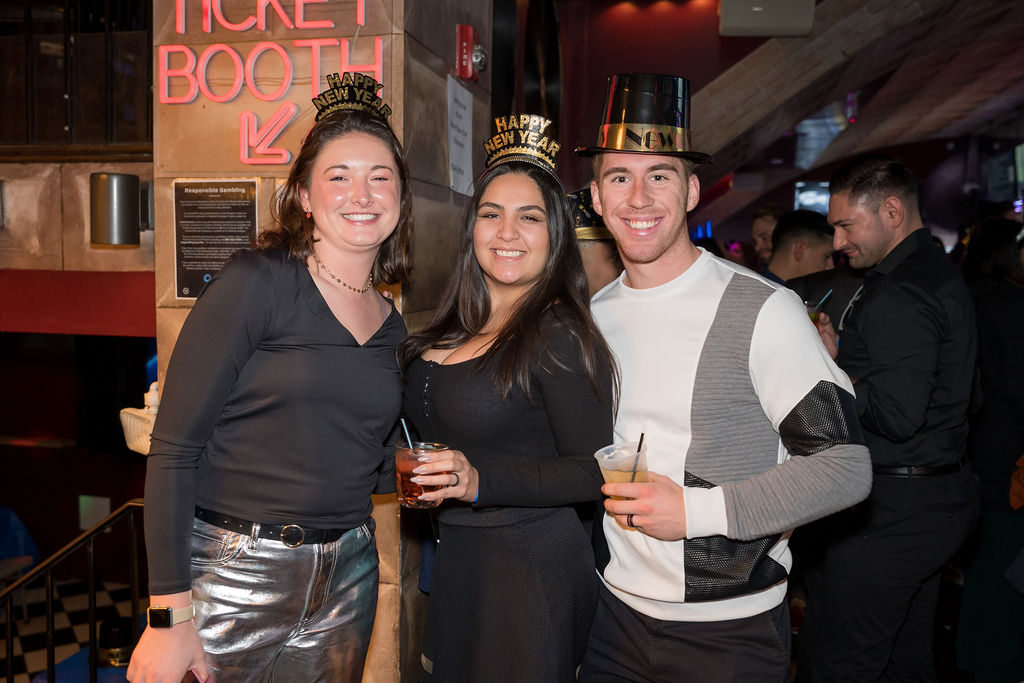Music
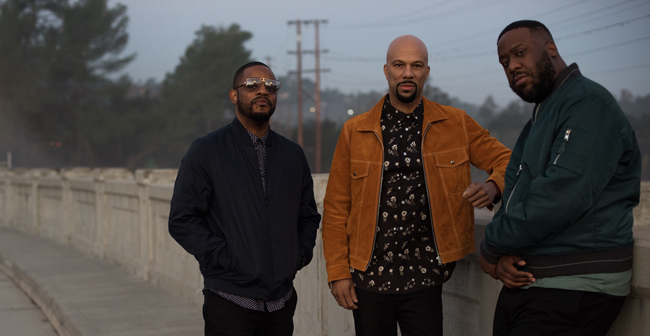 (Karriem Riggins left) Photo: Courtesy of August Greene
(Karriem Riggins left) Photo: Courtesy of August Greene
Karriem Riggins Talks Supergroup August Greene
March 28, 2018 @ 12:00am
After years of toying around with music behind the scenes, the trio of famed artists Common, Robert Glasper and Karriem Riggins finally decided the time was ripe for a collective release. Though the three had collaborated previously, 2018 finally saw the release of August Greene‘s self-titled album, the supergroup’s first.
Along with their first official LP, the group also begun touring this year, offering live performances to audiences for the first time. A glimpse of their set was on display during a spirited NPR Tiny Desk appearance from February, and since they’ve only gone on to bring their positive message and politically fueled music to bigger arenas. This is nothing new for the three, as they are all celebrated artists from previous solo acts and bands.
Before August Greene performs at the Kennedy Center tomorrow night, we had a chance to talk to Riggins, the expert percussionist of the group. He divulged on the differences of writing music for live performance and production, the name August Greene and why the group formed.
On Tap: I know you three had worked together before, so how long had you guys been having jam sessions with one another before you decided to form this super group?
Karriem Riggins: The three of us started working together on Common’s Black America, the original sessions were in 2016. Actually, Robert [Glasper] came to Detroit in 2011 and we were just talking and he put it out there, and it was like “we are doing an album together,” and it was written.
OT: Where did the name come from?
KR: The name is something that Common and I came up with years ago for some random project that we couldn’t get together. It’s something the fans can interpret, it’s mainly something that sounds good and feels good. I was born in August, so that month is very close to me, and [green is] my birth stone as well, so it’s pretty close to home.
OT: Is the music a product of you guys coming together naturally, or did you know what kind of sound you wanted the music to have?
KR: It’s exactly what we do. Being diverse musicians that can play a lot of different genres, you can play very busy. When you’re accompanying a soloist you have to spark it to get them there. With this situation, it’s a less is more. In many ways we’re accompanying Common, so he can can flow. Robert is great at that as well, as he creates the fire, but he’s a lot like Miles Davis, that quiet fire. Intensity without volume, and I think about that in this style of production.
OT: You’ve been in a lot of groups and performed solo a lot as well, do you think a group like this only works with more seasoned veterans, for instance would this same group have found each other in this way, say, 15 years-ago?
KR: No, but I think we try to approach it differently. We approach the music as the first time I’m doing music. I don’t want to know exactly what to do with it until after. I don’t want to sound like an old school veteran, because that can be boring. I want to approach it with a new mindset. I don’t want to be a traditionalist, and I want to create the new.
I just try something I’ve never tried before, it’s like going out on faith really. I started with the drum idea for “No Apologies,” because I usually warm-up and then write music with tracking on, but they liked what I was doing to warm up, and I was like ugh, I don’t know if I can do that again.
OT: You can definitely hear the experience in the music as well, as the songs are pretty subtle, maybe even minimal. Was that a focus for you guys, to really flesh out what kinds of things you wanted to stand out in the songs?
KR: Not really, it all kind of came naturally. I think we’ve recorded a lot of music, and the music we recorded and he connected to he immediately wrote to. Everything he wrote to, made the album, and we knew exactly what it would be. We might have to release the leftover instrumentas
OT: Did you guys know you wanted the music to be motivational and political, or did that also come about naturally when jamming?
KR: No, but you know what it is, we’re all kind of motivational and positive people. We were all like minded in that we wanted to do this kind of music, we all love that song “Optimistic,” and we all shared that sentiment of loving that song, and what it meant in times of stress. I played it in the studio one day, and we shared that same love, and Robert suggested we should do it. We didn’t know who would sing it, but he knew Brandy would crush it. I spoke to Jimmy Jam [of Sounds of Blackness] and he sent his love and that meant a lot to us. It’s good when you can do a remake and the creators of the song like it, love it and feel it.
OT: How is your approach to music making different when you play live drums as opposed to producing for others, is there a shift in process at all?
KR: Well you know, when I’m programming I’m trying to do make something that I would play, just the different nuances and things that I could play. When I produced the Black America album, there’s a lot of samples on there, and [August Greene] is totally different from that. We wanted it to be live focused. I think it’s important to be able to articulate yourself on multiple instruments, whether it be in a program or on live drums. I want to learn all these things to get ideas out, and there’s no wrong way. Some producers just use the mouse, and put the cursor right on the beats, and boom there’s all your snares and kicks.
OT: Is there any difference, maybe from even an ego perspective of being a part of a band backing a rapper, with his name on the marquee, as opposed to being in a group like this one?
KR: I think it’s a different situation. I feel like we all had our input and our sound in the music, and it has a piece of all of us in there. Common spoke that when you hear the music, you hear what we all listen to. We’re all in the music, and his trainer at the time we were recording said we have such a great sound as a unit. I’m just a musician and I love to play, so I like being in both situations. That’s what a lot of our favorite musicians did, Art Blakey and Elvin Jones, but when it was there time to shine they did their thing.
OT: You guys just started playing live earlier this year, has that experience been what you thought it would be? How much fun are you having being a part of August Greene?
KR: Oh, it’s so dope. Sometimes we think “ah man we only have one album worth of music,” but we have so much to say, and we end up running over. We’ll have five minutes left and we won’t have even been through all the songs. We’re still fine tuning the show, and there’s so much we have to say. The SXSW was really crazy, and the energy was through the roof. The way we do it is we stay on a groove, and it feels so good. There’s different syncopation in it, and that’s why a lot of the songs are so long.
August Greene’s Kennedy Center performance starts at 8 p.m. on Thursday, March 29. Tickets are $39-$149. For more information on August Greene, follow them on Twitter at @Augustgreeneband.
The John F. Kennedy Center for Performing Arts: 2700 F St. NW, DC; 202-467-4600; www.kennedy-center.org


